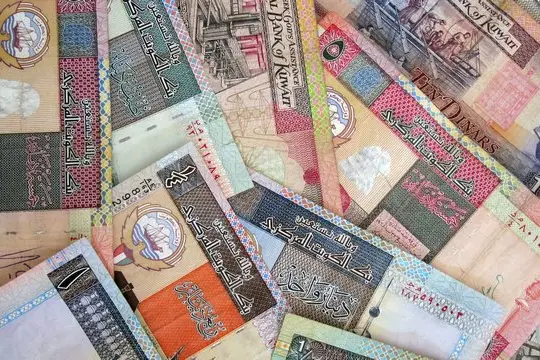Introduction
Kuwait is on the cusp of a transformative change in its housing finance system that could significantly impact the country’s economic and social fabric New Mortgage Law. The government is preparing to introduce a comprehensive mortgage law that will allow commercial banks to provide housing loans, a function that until now has been the exclusive domain of the state-run Kuwait Credit Bank. This reform arrives at a critical time, as the country faces a substantial backlog of over 100,000 home-loan applications and a pressing need to address its housing shortage. The new mortgage law promises not only to ease this burden but also to invigorate the financial sector and stimulate broader economic growth.
Revolutionizing Housing Finance in Kuwait
The upcoming mortgage legislation is designed to overhaul Kuwait’s housing finance landscape fundamentally. Under the current system, the Kuwait Credit Bank has been the primary provider of long-term housing loans, but its capacity has proven insufficient to meet demand. By enabling commercial banks to enter the mortgage market, the government is broadening the pool of lenders and increasing competition, which should result in more favorable loan terms and improved service for borrowers.

A key feature of the proposed law is the extension of maximum repayment periods. Currently capped at 15 years, the law seeks to allow mortgage repayments over 25 to 30 years. This longer term will reduce monthly payments for borrowers, making homeownership more affordable for many families. Additionally, the law is expected to raise the permissible debt-to-income ratio, offering borrowers greater flexibility in securing loans relative to their income.
Bank executives and industry experts view this reform as a game changer. Ahmed Al-Duwaisan, acting CEO of one of Kuwait’s leading banks, describes the legislation as a pivotal step that will unlock significant growth in retail banking. The move is also expected to diversify banks’ lending portfolios, providing a more balanced revenue stream beyond corporate loans and government securities.
Economic Ripple Effects and Opportunities
The broader economic implications of the mortgage reform are considerable. Analysts forecast that the increased availability of housing loans could drive a 3.5% to 4% annual increase in overall bank loan growth. This expansion reflects the sizeable pent-up demand in the housing market and the readiness of many Kuwaiti families to invest in property once financing becomes more accessible.
The construction sector stands to benefit substantially as well. Increased demand for mortgages will likely fuel new homebuilding projects, generating employment opportunities and spurring activity in related industries such as building materials and home furnishings. This multiplier effect aligns with Kuwait’s national strategy to diversify its economy away from oil dependency, creating a more sustainable and resilient economic future.
Investor sentiment toward Kuwait’s real estate market is also improving. Recent reforms to prevent land monopolies have instilled greater confidence, reducing speculative risks and promoting a healthier investment environment. The mortgage law complements these efforts by making homeownership more attainable, which should further boost real estate transactions and market stability.
Strategic Advantage for Banks
For Kuwait’s financial institutions, the mortgage law represents a strategic opportunity to reshape their market positions. By entering the mortgage lending space, banks can attract a broader segment of retail customers and build long-term client relationships. This will be especially important as competition intensifies in other financial services.
Leading banks are already preparing to capitalize on this reform. Several institutions are investing in digital banking infrastructure and fintech partnerships to streamline the mortgage application process, improve customer experience, and reduce operational costs. These technological advancements will enable banks to serve borrowers more efficiently and tailor products to meet diverse needs.
Furthermore, mortgage lending offers banks a relatively stable and predictable income stream, as home loans typically have longer maturities and lower default rates compared to other types of credit. This stability will help banks manage risks better and support their overall financial health.
Addressing Housing Challenges for Citizens
Beyond the economic and banking sector benefits, the mortgage law aims to address a critical social challenge—making housing affordable and accessible for Kuwaiti citizens. The high cost of homeownership and limited financing options have long been barriers for many families, particularly younger generations seeking to establish their own households.
By broadening access to mortgage financing, the law empowers more Kuwaitis to fulfill their aspirations of owning a home. This has important social implications, including greater community stability, improved quality of life, and enhanced social cohesion. Homeownership is often linked to higher levels of personal investment in local communities and contributes to overall societal well-being.
Moreover, the law’s flexibility in repayment terms and loan sizes acknowledges the diverse financial realities of Kuwaiti households, ensuring that mortgage products are inclusive and equitable.
Looking Ahead
As Kuwait moves closer to enacting this landmark mortgage reform, anticipation is growing within the banking industry and among citizens alike. The legislation signals a commitment to modernizing the financial system and tackling longstanding housing issues, which could position Kuwait as a regional leader in housing finance innovation.
The success of the mortgage law will depend on effective implementation, including clear regulatory guidelines, robust risk management by banks, and continuous oversight to protect consumers. Collaboration between government entities and financial institutions will be crucial to realize the reform’s full potential.
Ultimately, this initiative reflects a broader vision for Kuwait’s future—one where economic diversification, social inclusion, and financial innovation converge to create a thriving, resilient society. By opening new doors for banks and homebuyers, the mortgage law stands as a beacon of positive change and opportunity.



